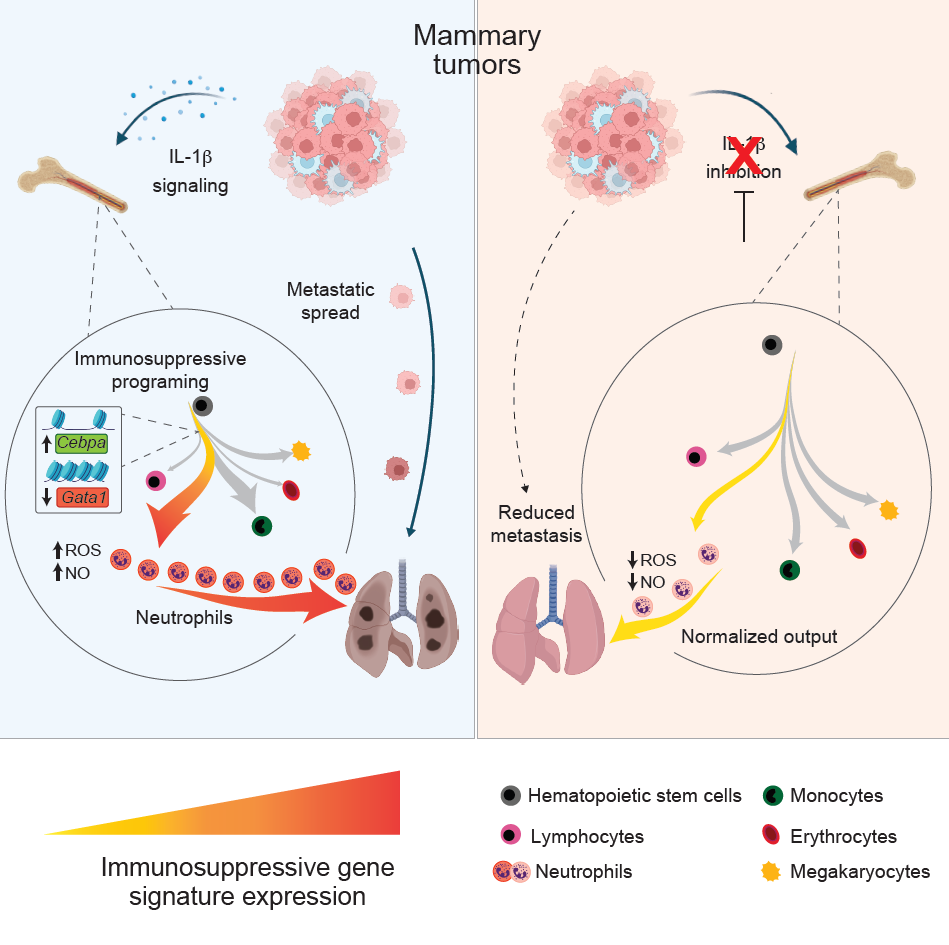Neutrophils are white blood cells originating from the bone marrow. They typically function to support the immune response against infections. In breast cancer, however, these cells appear to suppress the immune system instead, facilitating the tumor's spread to other parts of the body. The precise mechanisms behind how and when this occurs have been unclear until recently.
The research groups led by Karin de Visser and Elzo de Wit discovered that this process starts very early, during the development of white blood cells in the bone marrow. A key factor is interleukin-1-beta (IL-1β), an inflammatory substance produced by the tumor. This substance disrupts the balance in the bone marrow, leading to the excessive production of immune cells with suppressive functions.
Group leader and Oncode Institute researcher Karin de Visser explains: “To restore the normal development of white blood cells and rebalance the system, we examined strategies to influence IL-1β function.” Postdoc Hannah Garner and PhD student Moreno Martinovic demonstrated that treating a mouse model of breast cancer with a drug that inhibits IL-1β restored the balance in the bone marrow and blood, reducing the likelihood of metastasis. This drug had previously been tested in people with cardiovascular diseases, during which it was coincidentally observed that cancer incidence was less frequent in patients taking the medication.

“We knew breast cancer affects the immune system, but the discovery that it starts in the bone marrow was particularly notable,” says de Visser. “It is encouraging to think that we may be able to reverse this process using an existing drug.” These findings highlight the importance of fundamental research: only by thoroughly understanding how tumors affect the body can we discover new ways to treat or even prevent cancer.
The results have been published in the scientific journal Cancer Cell. Further research could determine whether this approach is effective in people with breast cancer. The scientists intend to investigate which forms of breast cancer could benefit the most from the drug, and whether it can be combined with existing immunotherapy.
The research was financially supported by KWF Dutch Cancer Society and Oncode Institute.